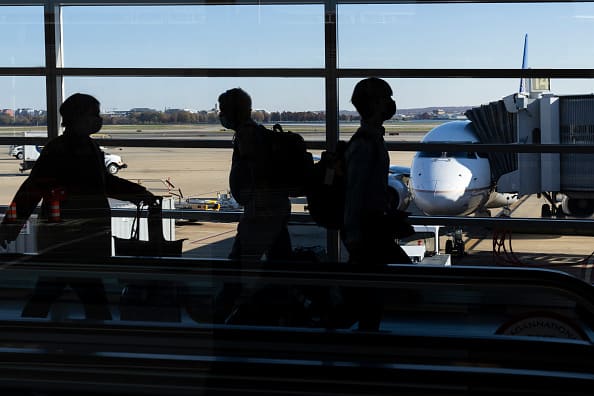
International air travel has been making a strong recovery this year, with the exception of the Asia-Pacific region, which is “lagging significantly behind,” according to the International Air Transport Association (IATA).
“Last year, international travel was at about 25% of where it was in 2019. First quarter of this year across the globe, it’s up 42%,” Willie Walsh, the director general of the industry body, told “Squawk Box Asia” on Tuesday.
“In fact, what we’re seeing is very strong growth rate in some markets, from the U.S., Europe, Latin America, all touching around 60%.”
For example, United Airlines’ shares added more than 3% in extended trading on Monday, after the company issued an update on its second-quarter outlook.
In contrast, air travel in Asia is “only about 13% of where it was in 2019,” Walsh added.
China is still pursuing its zero-Covid policy, with Shanghai and Beijing tightening restrictions on business and travel. But China’s travel restrictions will not play a big role in global air travel recovery, he said.
“The positive is that there are lots of other markets opening up so airlines have an opportunity to expand their network … to those markets,” he added.
‘Premium’ travel uptick
When asked if the business segment of the airline industry will be returning to pre-pandemic levels, Walsh said that recovery will be “a bit slower.”
“We get a lot of business people traveling in economy … business recovery is lagging slightly,” he added.
“But I think everybody would now accept that it’s not going to have a fundamental structural shift that we all believed might happen.”
In contrast, he observed that there are more “premium” travelers who are travelling in first class or business class.
“That points to what has been a very important segment of the market, which we call premium leisure … what we’re seeing there is people have more disposable income and are prepared to pay for that premium and experience.”
“I fully expect premiums [to] continue to recover quickly,” Walsh added.
To meet that demand, airlines are offering luxury cabins in the hope of getting high-paying customers to shell out for more space on board.
For example, Singapore Airlines observed that business-class seats on planes have been selling out before economy seats, which is a “reversal of a pre-pandemic trend.”
Challenges for air cargo
Even as recovery for air travel gains momentum, the IATA sees “some challenges” for the global air cargo market.
“We had record performance in 2021 and continues to improve in 2022 … but it’s just dipped a little bit behind those highs of 2021.”
Walsh attributed it mostly to Russia’s attack on Ukraine. “A lot of cargo was carried by Russian cargo operators, security has been totally destroyed,” he added.
IATA said in a report that air cargo volume dropped 5.2% year on year in March.
“The war in Ukraine led to a fall in the capacity used to serve Europe, as several airlines based in Ukraine and Russia were crucial carriers in the region,” it wrote.
“The ongoing spread of Omicron in Asia, and China in particular, is causing new lockdowns and labor shortages. These have strongly impacted manufacturing centers in China and Asia that in turn have hurt air cargo transport in markets linked the region.”
This article was originally published on CNBC

